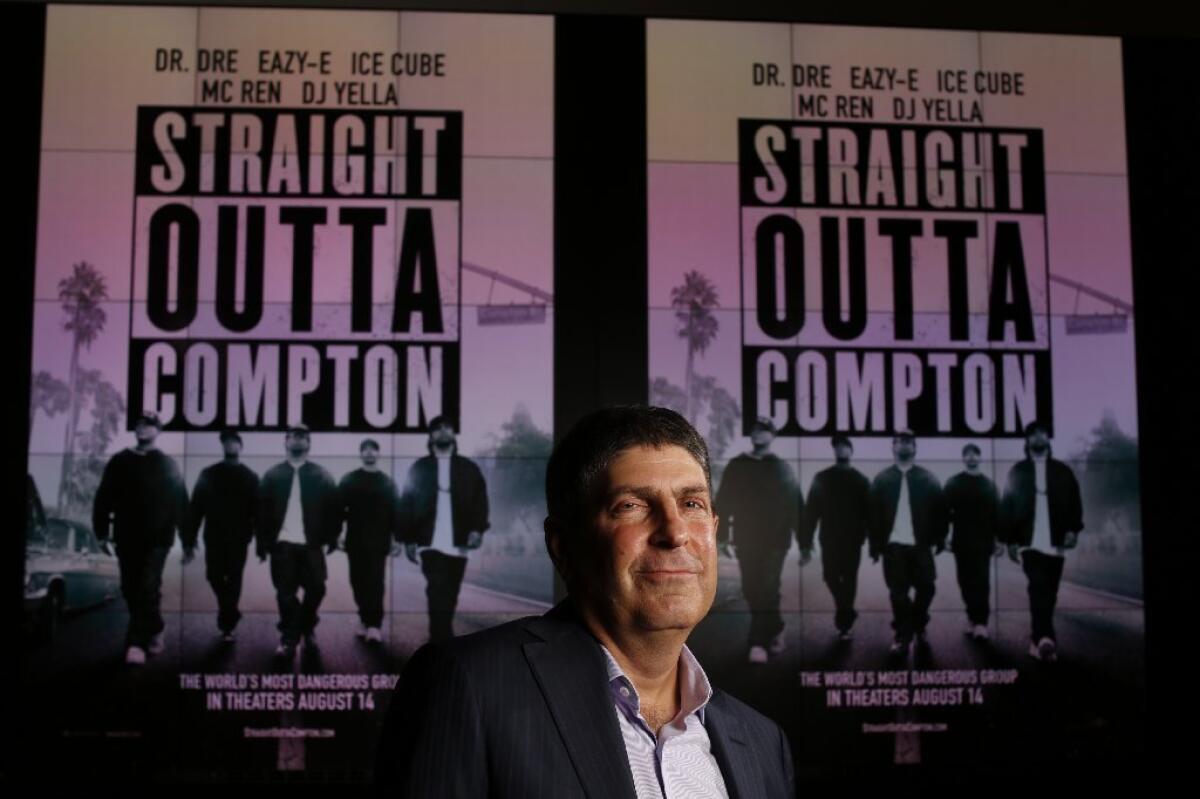Russia expels top U.S. government broadcast official in response to sanctions

Russia expelled a top Obama administration broadcast official Wednesday, escalating tensions between Moscow and Washington just before the arrival of a last-ditch U.S. diplomatic mission focused on the war in Syria.
Jeff Shell, a Hollywood executive who also chairs the board that oversees U.S. government broadcasting abroad – including the Voice of America and Radio Free Europe – was detained when he landed at Moscow’s Sheremetevo international airport late Tuesday, the board said in a statement.
He was locked in a room, told by security authorities that he was subject to a lifetime ban on entering Russia, and was finally put on a flight to Amsterdam, the board said.
It said Shell had a valid U.S. passport and visa to Russia.
Shell is a presidential appointee who serves on a part-time basis as chairman of the Broadcasting Board of Governors. He is also chairman of NBCUniversal’s Filmed Entertainment Division, based in Los Angeles.
The board says it promotes democracy worldwide by overseeing broadcasts in the Middle East, Africa, Asia and, in Cuba, through Radio and TV Marti. Many of the governments disdain the broadcasts as U.S. propaganda.
In Moscow, a Russian government statement said Shell was expelled in response to U.S. sanctions that include bans on several Russians who are barred from entering the United States.
Washington and other world powers have placed sanctions on Russia because of its military actions in Ukraine and elsewhere.
Shell was visiting Moscow on NBCUniversal business, board spokeswoman Nasserie Carew said, although the Russian government statement made clear he was deported because of his board position.
State Department spokesman Mark Toner said the U.S. government “expressed its concerns” over Shell’s treatment.
Asked about the Russian explanation, Toner said a better response from Moscow would be to address the core reasons for the sanctions and “not do a tit for tat.”
Each government has expelled two of the other nation’s diplomats in recent days, following a scuffle between an American diplomat and a Russian security guard outside the U.S. Embassy in Moscow.
Previously, the Obama administration complained that a number of its officials in Russia had been harassed by authorities and targeted for home burglaries. Russia made a similar complaint about alleged mistreatment of its staff in the United States.
More broadly, Moscow and Washington have been locked in an often unfriendly alliance over Syria. Both governments say they want to end the civil war but Moscow supports the Syrian government of President Bashar Assad while the U.S. opposes it – and insists that Assad step down.
Secretary of State John F. Kerry is scheduled to visit Moscow this week to meet with President Vladimir Putin and Foreign Minister Sergei Lavrov in an attempt to secure a more stable, if partial, cease-fire in Syria.
Kerry is expected to offer Moscow enhanced coordination and intelligence-sharing for targeting Islamic rebel groups in Syria with airstrikes and other attacks. Some other members of the Obama administration are opposed, arguing that Russia and the Assad regime cannot be trusted with such information.
A partial cessation of hostilities has been in place, off and on, since February. But the U.S. maintains that Russian and Syrian government forces continue to attack rebel groups that the U.S. supports and who have, at least nominally, agreed to the truce.
Yet Kerry, who will leave office with Obama next January, may feel he has few options.
He recently pledged that a political transition should begin in Syria by Aug. 1, and said civilians continue to be killed and driven from their homes in what the Obama administration has called “the most complex humanitarian crisis of our time.”
“We need to get beyond these periods of calm, or whatever we are calling them, and get to a national cessation of hostilities,” Toner said.
For more on international affairs, follow @TracyKWilkinson on Twitter
ALSO
Some of the people who are supposed to be saving rhinos are helping them die out
China has been killing turtles, coral and giant clams in the South China Sea, tribunal finds
More to Read
Start your day right
Sign up for Essential California for news, features and recommendations from the L.A. Times and beyond in your inbox six days a week.
You may occasionally receive promotional content from the Los Angeles Times.







